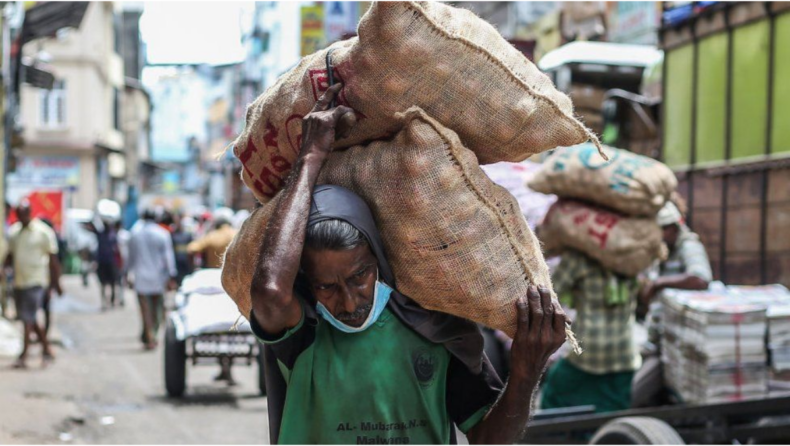Sri Lanka is facing one of the worst economic crises since its independence. People queued up in long lines as fuel shortages hit the country. The power and energy minister stated that the nation’s fuel stocks will last only for about five more days.
Highlights:
- Sri Lanka faces the worst financial crisis.
- Fuel stocks to last for about five more days.
- An extra day off for public sector employees to cultivate crops.
On Thursday, the minister of power and energy sector of Sri Lanka, Kanchana Wijesejara stated that the country’s fuel has dwindled and is expected to last for five more days. Kilometers-long lines waited at gas stations countrywide amid chronic fuel shortages. Sporadic protests broke out at some gas stations as the vehicle owners waited for petrol and diesel in long queues.
The island nation awaits a $500 million credit line for fuel from the Indian government. India has been a major supporter during the crisis. It has donated about $3 billion in assistance, including a $1 billion credit line for essential imports and a $400 million swap. Sri Lanka has also reached out to Russia and other countries to discuss fuel import options that would help the nation for the next few months. The government is also in discussion for a bailout package with the delegation of the International Monetary Fund expected to arrive on 20 June.
A looming food crisis:
Food prices soar in Sri Lanka amid fear of shortages. The political and financial crisis has put the nation in turmoil with a dwindling food situation. The country is asking its government employees to take an extra day off every week to grow crops in their backyard to tackle the food shortage. The decision is to help workers who are facing difficulties to get to work due to fuel shortages. It also encourages people to grow fruits and vegetables to feed themselves and their families.
The government said, “Granting government officials leave for one working day of the week and providing them with the necessary facilities to engage in agricultural activities in their backyards or elsewhere is one of the solutions to the food shortage that is expected to occur in the future.”
Last month, the country’s Agriculture Minister Mahinda Amaraweera requested the farmers to grow more rice. Worried about the food situation becoming worse, he pleaded with all the farmers to cultivate paddy for the next five to ten days to curb the food shortages.
Meanwhile, the immigration department witnessed long queues in a desperate attempt to obtain passports. The economic crisis has driven the Lankans to flee the country to find jobs abroad. Public sector employees were also encouraged to find employment abroad and send money home during unprecedented times.
A deepening spiral of economic crisis:
On Thursday, the United States announced a fund of USD 6 million as emergency assistance to Sri Lanka. Part of the funding is allowed to go to USAID’s social cohesion and reconciliation project (SCORE). The funds will support small-scale agricultural productivity and microenterprises majorly impacted by the economic crisis. The United States has pledged to pour in further support to help the island nation during its crisis.
Sri Lanka’s prime minister stated that the country needs at least $5bn over six months to pay for essential goods. Finance minister Mr. Wickremesinghe said in the parliament that more money was required this year to meet Sri Lanka’s basic needs. He mentioned that the nation has a population of around 22 million and requires around $3.3bn for fuel imports, $900m for food, $600m for fertilizer, and $250m for cooking gas.













